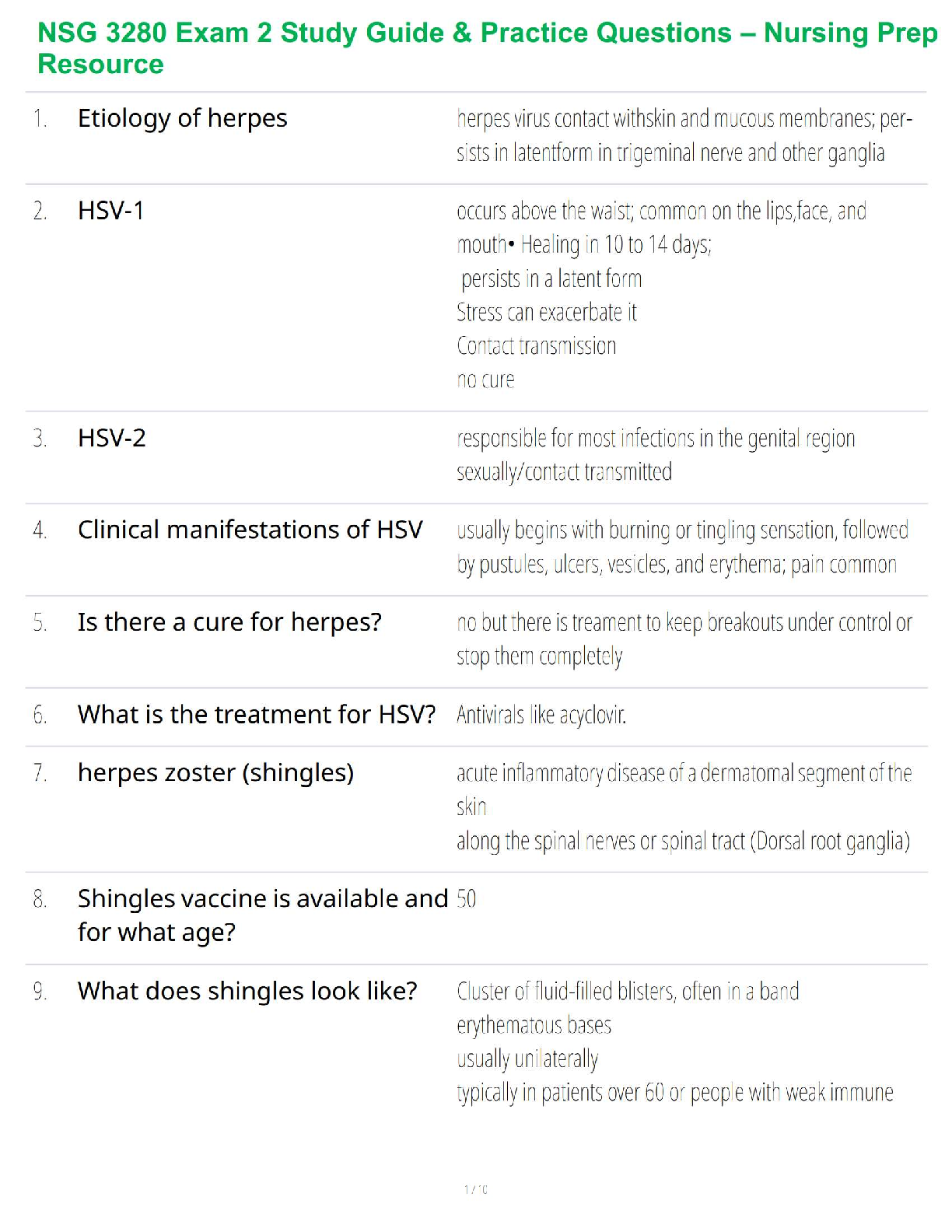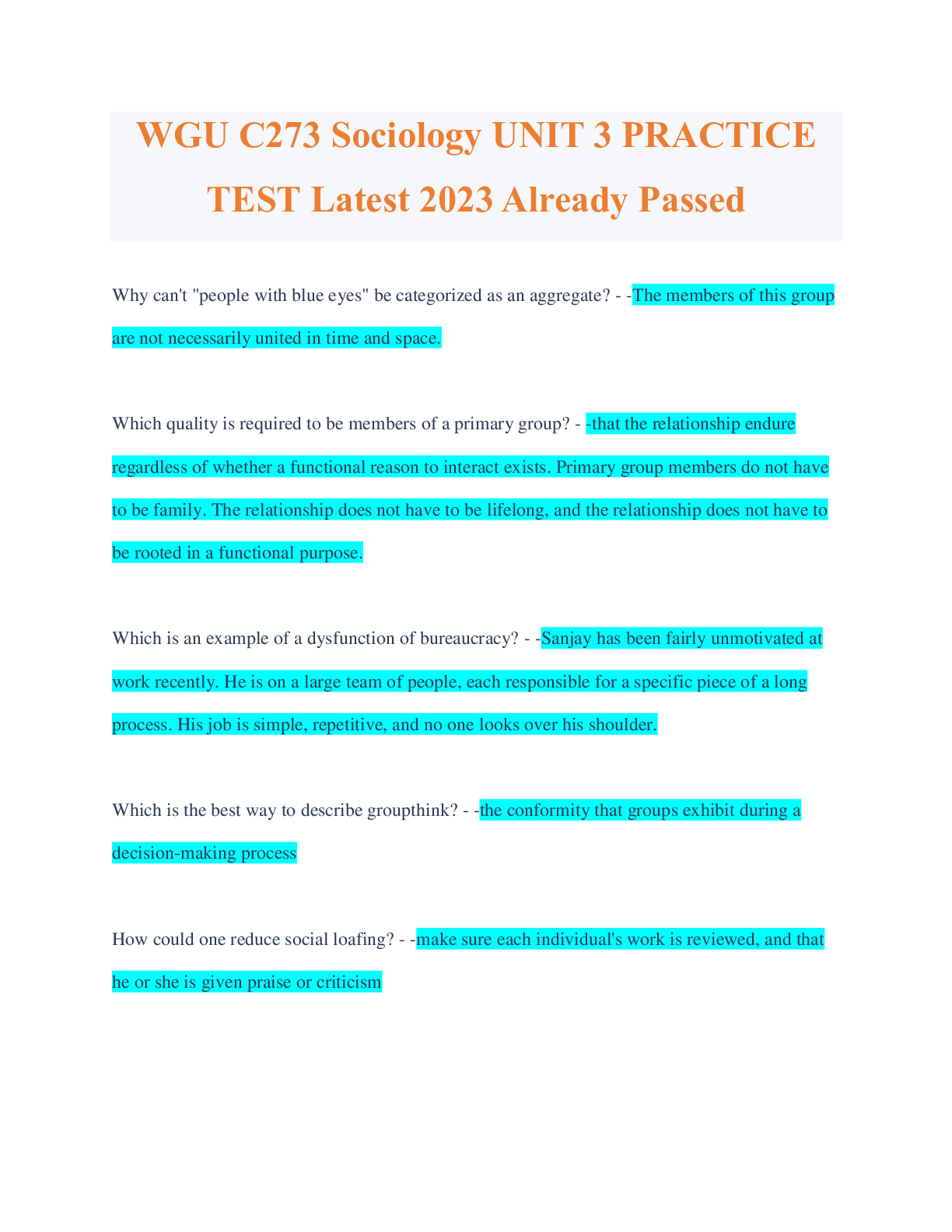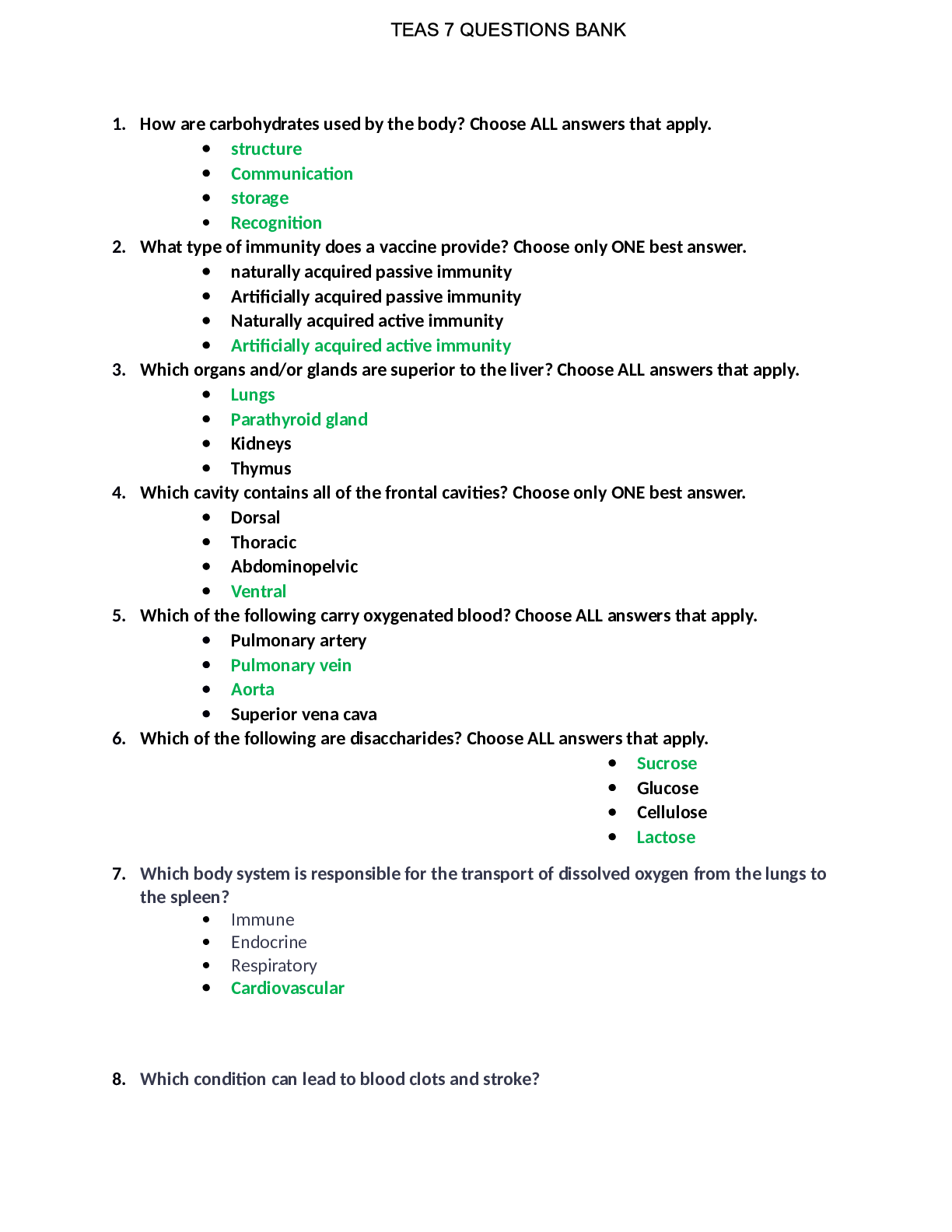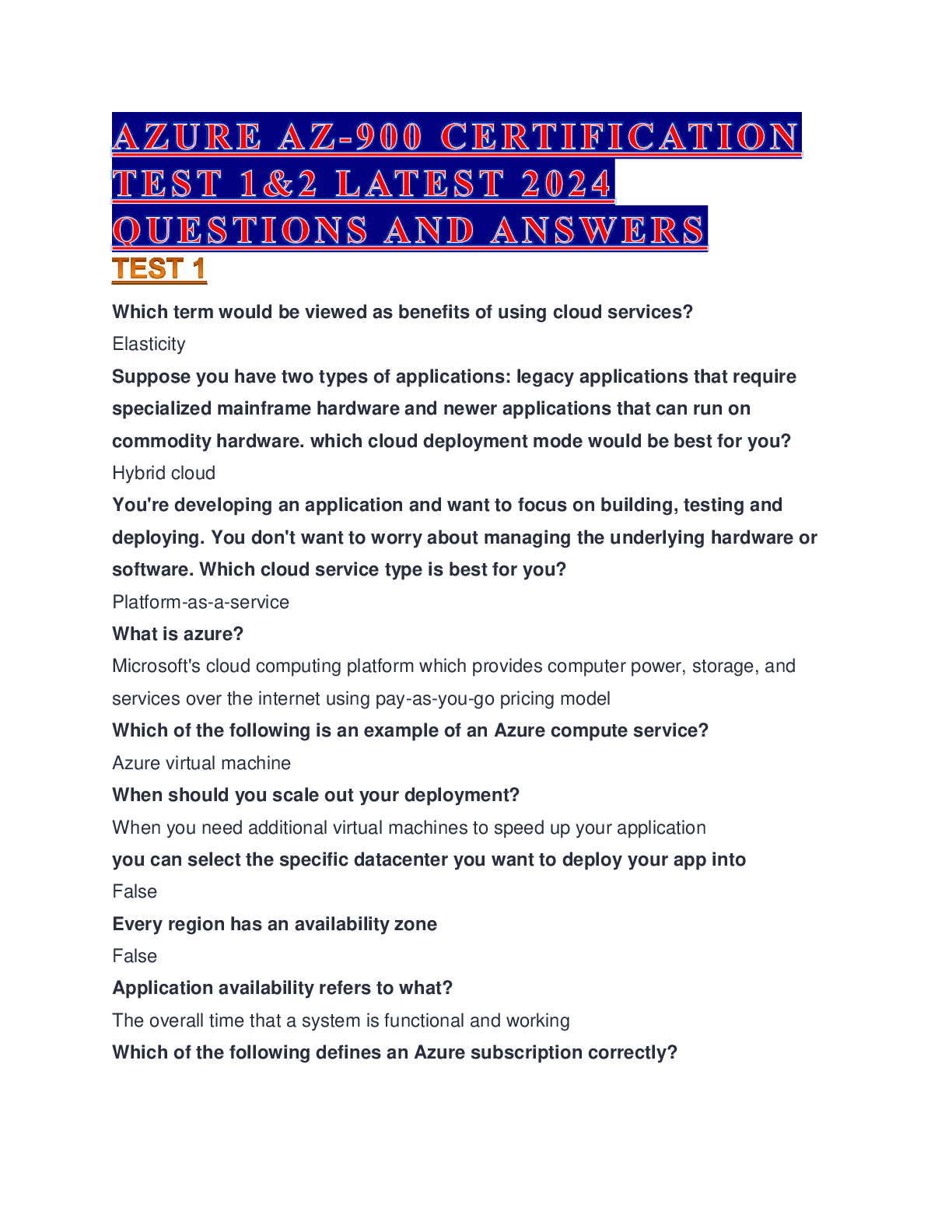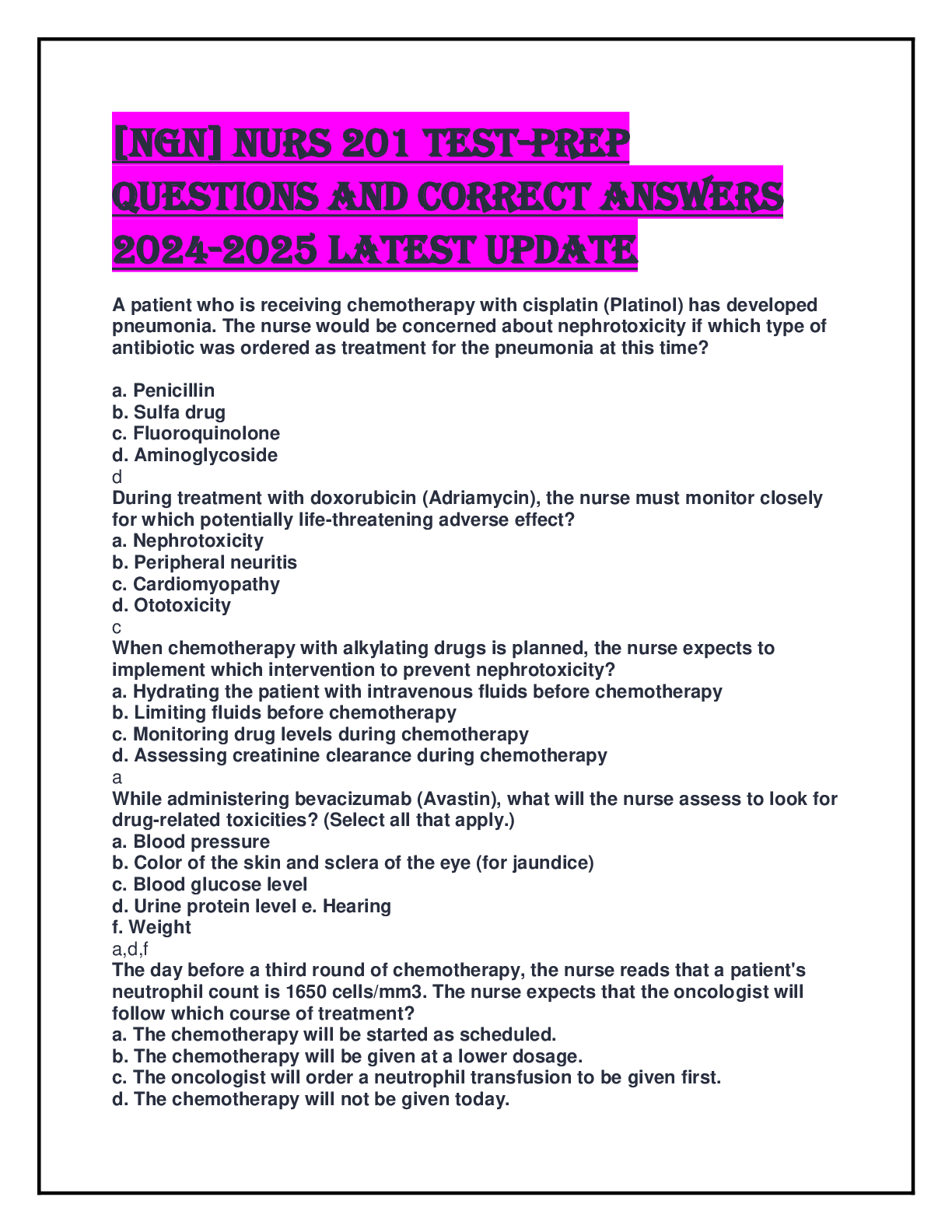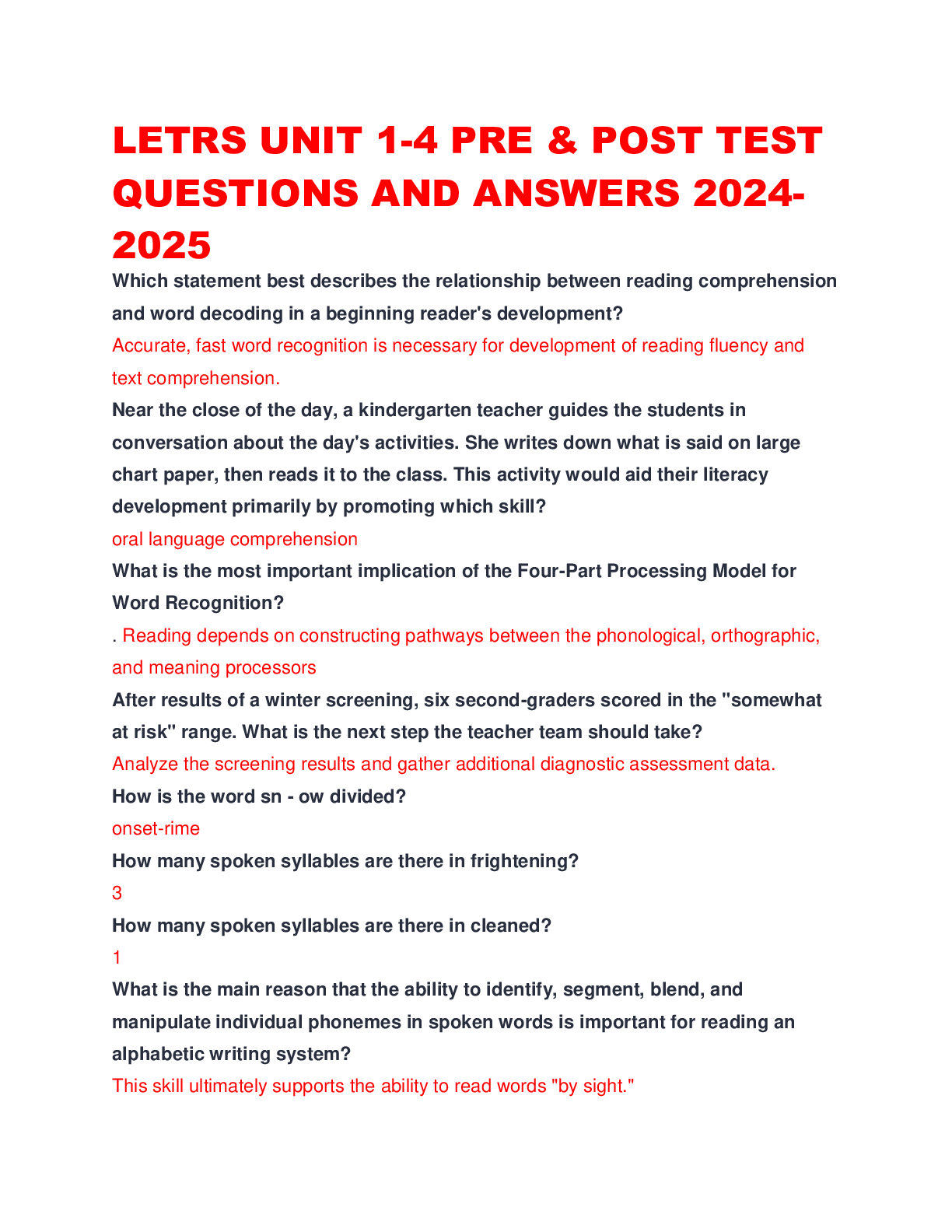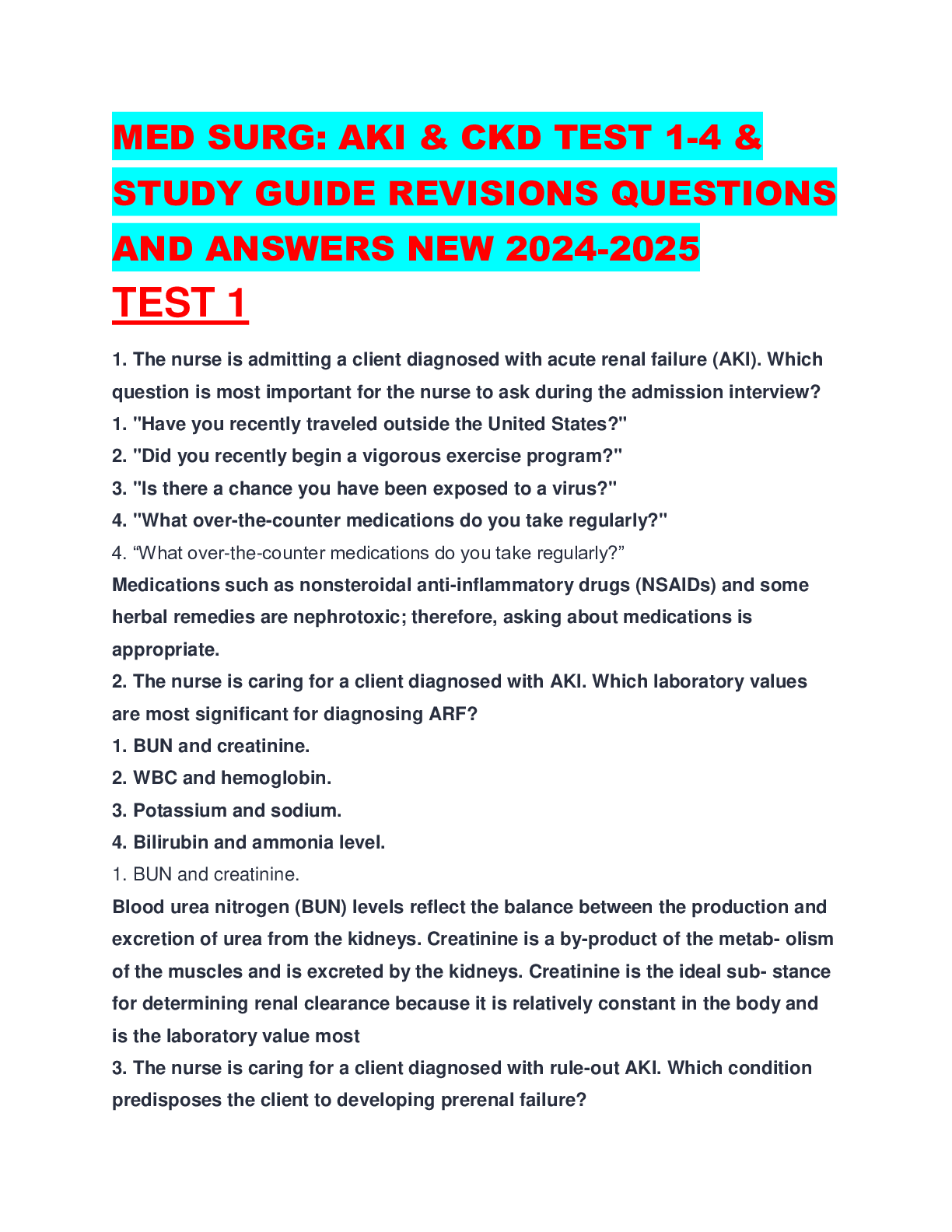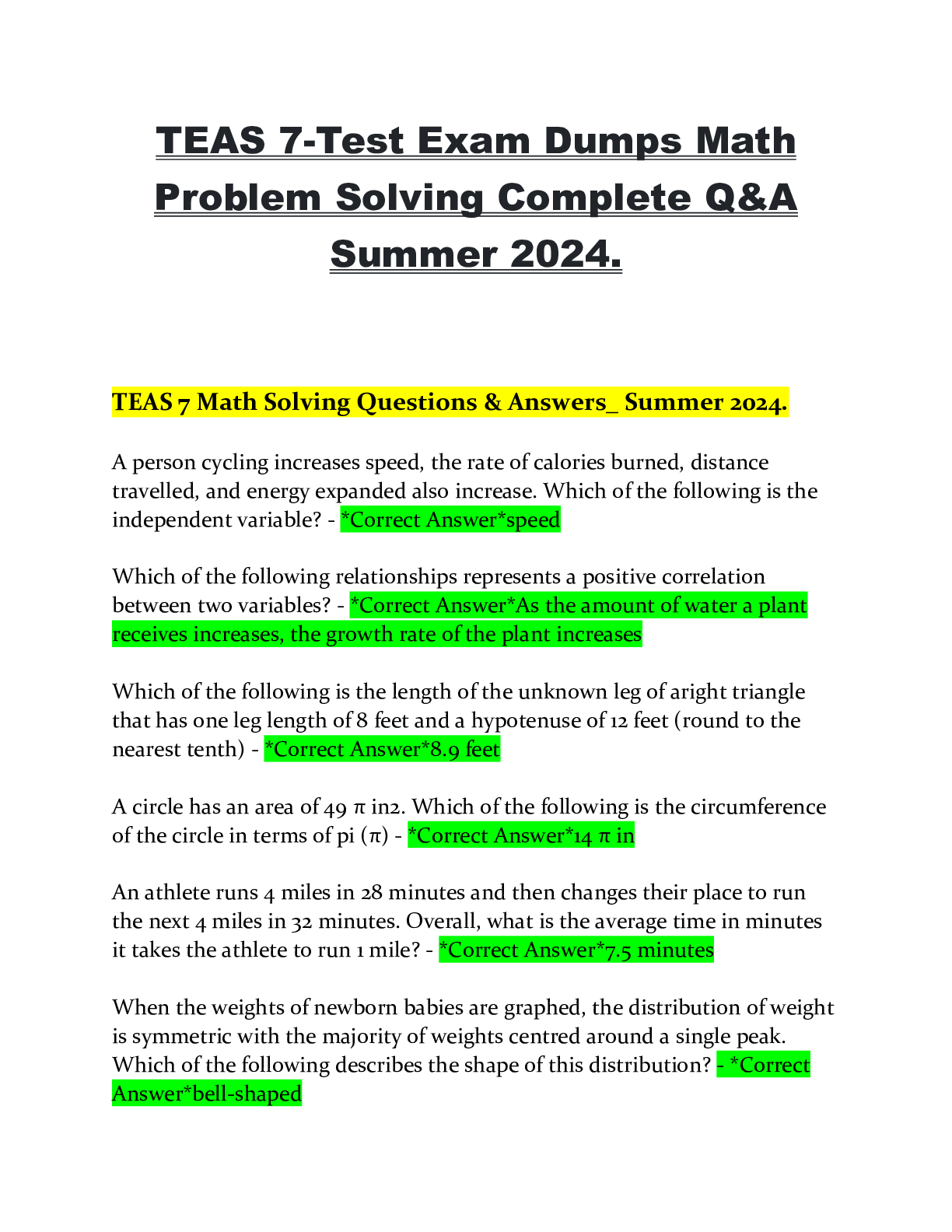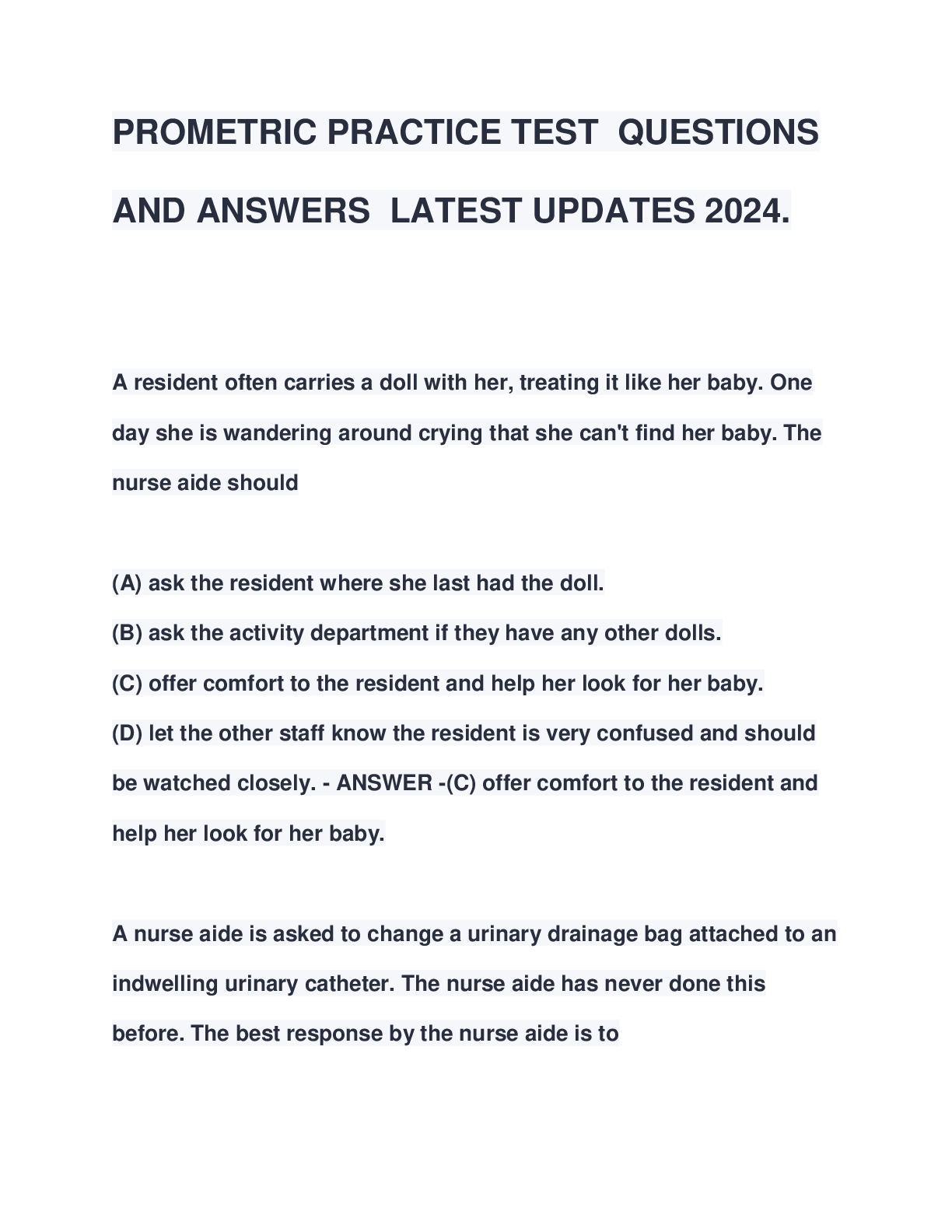ServSafe > TEST PREP > Instructions for Using the Diagnostic Test Prior to Classroom Instruction, 2025 (All)
Instructions for Using the Diagnostic Test Prior to Classroom Instruction, 2025
Document Content and Description Below
Teaching the entire content of the ServSafe® Manager Book in an eight- or sixteen-hour session can be challenging. Having learners who are better prepared before classroom instruction begins leads to ... a more efficient classroom experience for everyone. One of the best ways you can prepare learners for classroom instruction is to have them read ServSafe Manager Book before coming to class. Asking learners to complete the diagnostic test will also prepare them for instruction and help you focus on the areas that require additional attention in the classroom. Three weeks before class, you should send all learners a packet of information that contains the following: • ServSafe Manager Book • 80-question diagnostic test and answer key • Date(s) of the class • Time the class begins and ends • Location (with directions) • What to bring with them (e.g., pencils, a notebook, etc.) • What to expect during training and the examination A sample cover letter is provided in a separate file. The diagnostic test comes with a complete answer key. The answer key notes areas of weakness and directs learners to the appropriate sections of ServSafe Manager Book for further study prior to class. Additionally, you as an Instructor can use the results of the diagnostic test to note which areas of content will require extra attention in the class. Ask learners to send their completed diagnostic tests and answer keys to you prior to class. Use the test results to fine-tune the material you plan to deliver in class. You may want to dedicate extra time to subject areas that your learners found difficult. Circle the best answer to each question below. Be sure to answer all 80 questions. 1 Which food item has been associated with Salmonella Typhi? A Beverages B Produce C Shellfish from contaminated water D Undercooked 2 What symptom requires a food handler to be excluded from the operation? A Sore throat B Jaundice C Coughing D Stomach cramps 3 Which is an example of physical contamination? A Sneezing on food B Touching dirty food-contact surfaces C Bones in fish D Cooking tomato sauce in a copper pan 4 What practice is useful for preventing viruses from causing foodborne illness? A Cooking food to minimum internal temperature B Quick removal and cleanup of vomit C Excluding staff with Shigella spp. D Encouraging staff to get flu shots 5 What condition promotes the growth of bacteria? A High acidity B Low levels of moisture C Food held between 70˚F and 125˚F (21˚C and 52˚C) D Food with a pH that is highly alkaline ⓐ Parasites are commonly associated with what food? A Mushrooms B Wild game C Mold D Dairy products 7 What practice should be used to prevent seafood toxins from causing a foodborne illness? A Cooking food to correct internal temperatures B Handwashing throughout the day C Purchasing food from approved, reputable suppliers D Microwaving fish to be served raw for 15 seconds 8 How should chemicals be stored? A Above food B Away from prep areas C In food storage areas D With kitchenware [Show More]
Last updated: 9 months ago
Preview 1 out of 17 pages
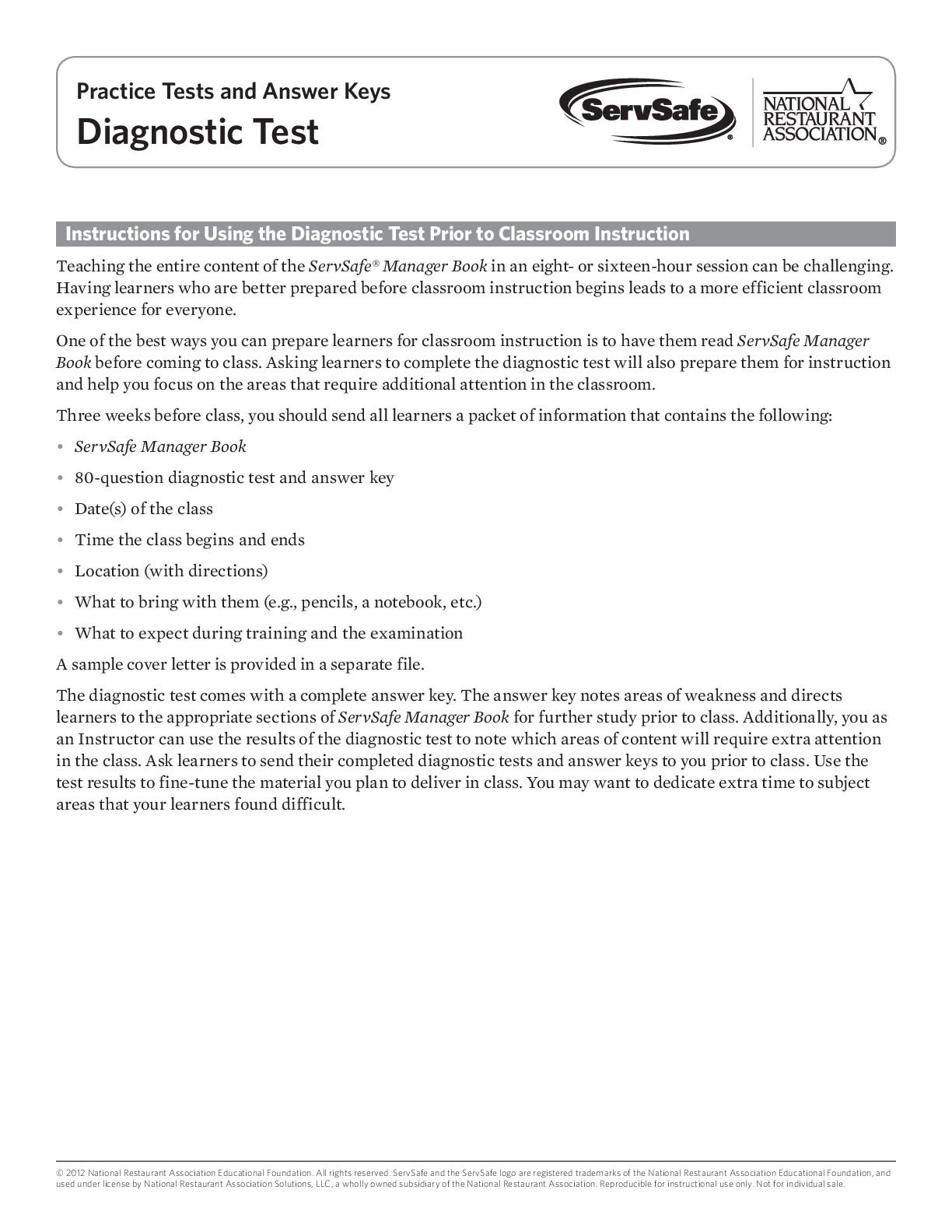
Buy this document to get the full access instantly
Instant Download Access after purchase
Buy NowInstant download
We Accept:

Reviews( 0 )
$20.50
Can't find what you want? Try our AI powered Search
Document information
Connected school, study & course
About the document
Uploaded On
Mar 12, 2025
Number of pages
17
Written in
All
Additional information
This document has been written for:
Uploaded
Mar 12, 2025
Downloads
0
Views
38

